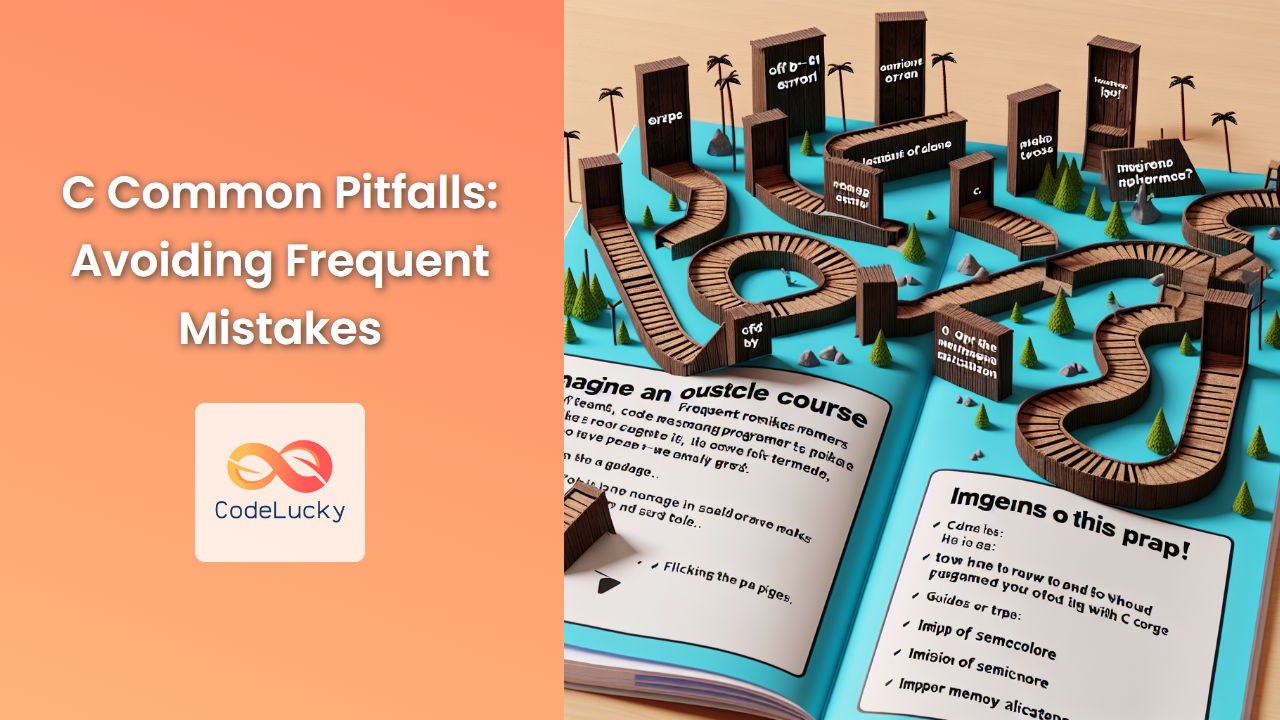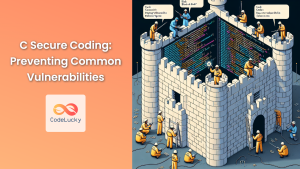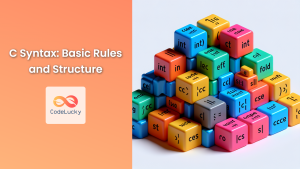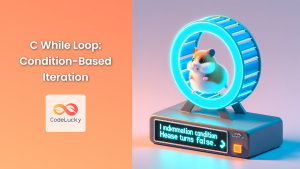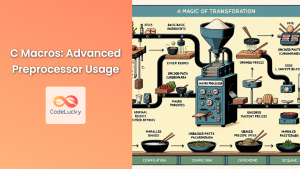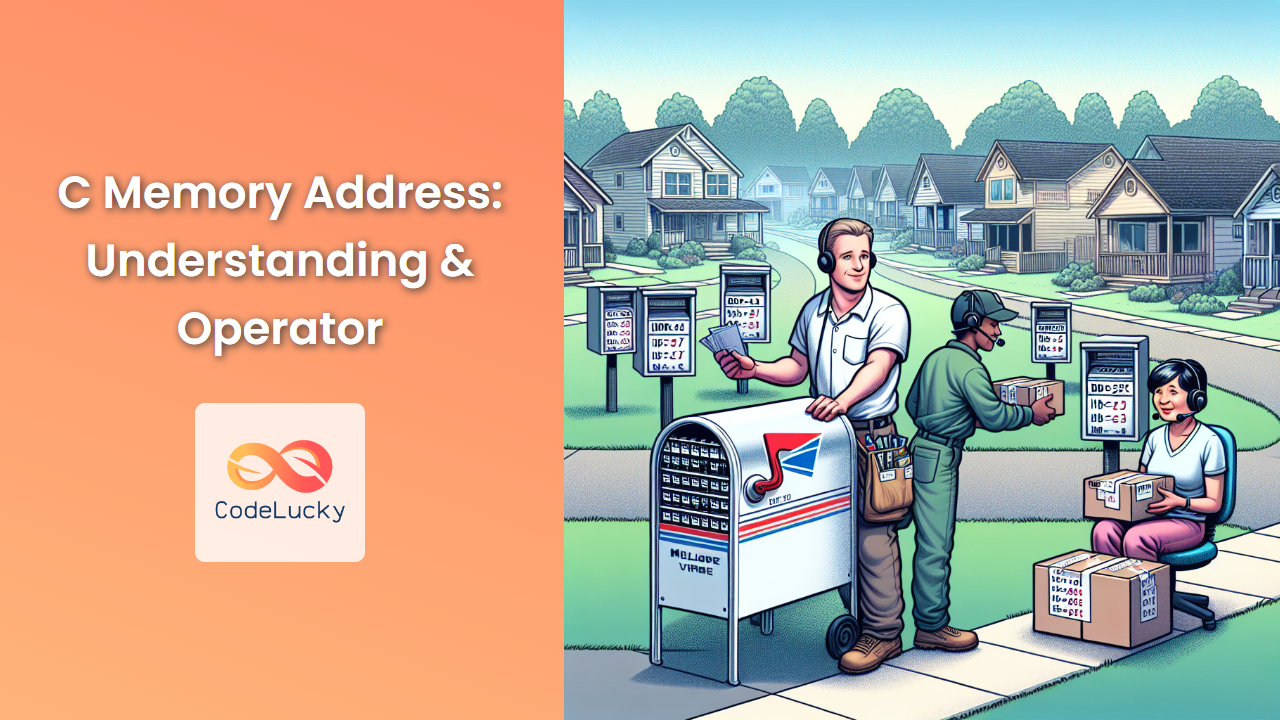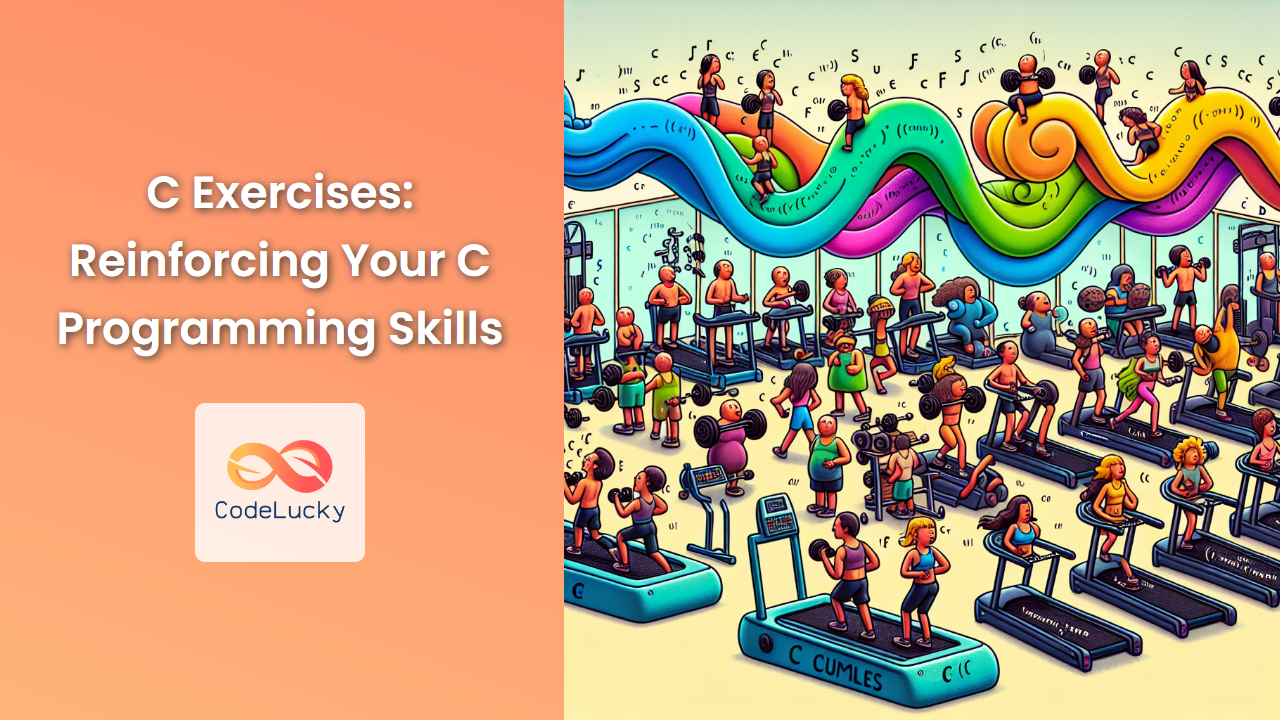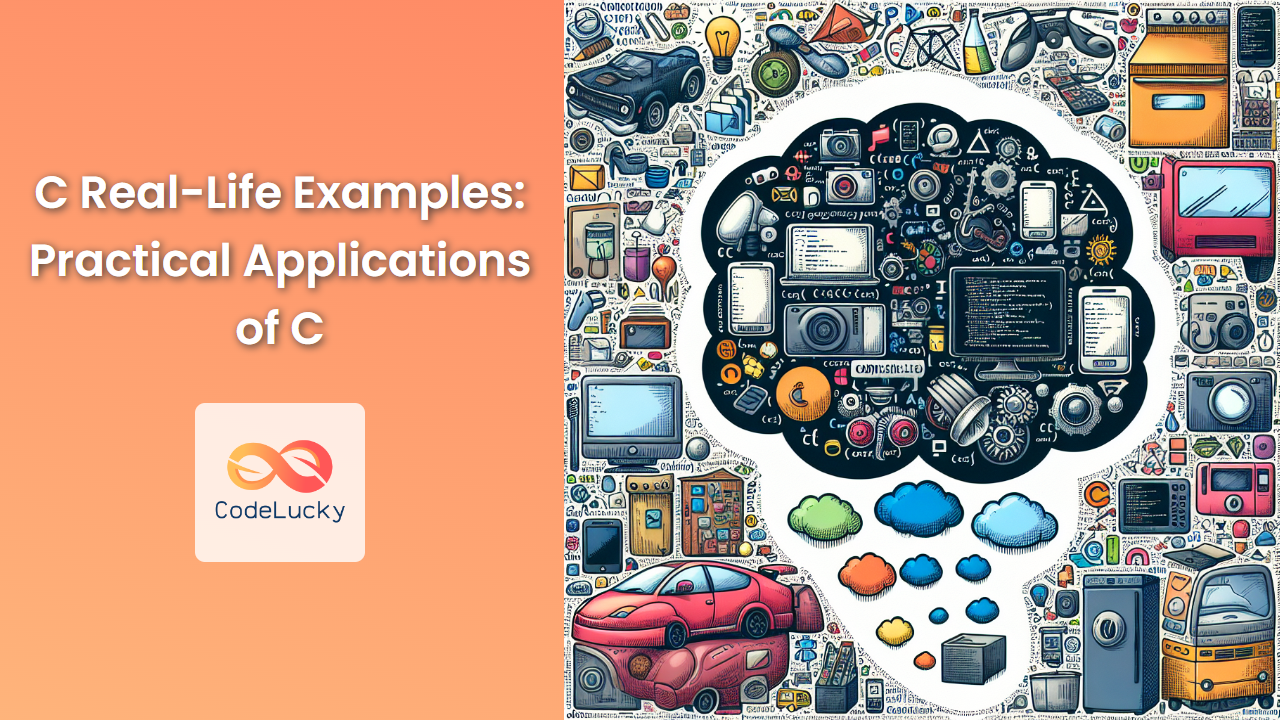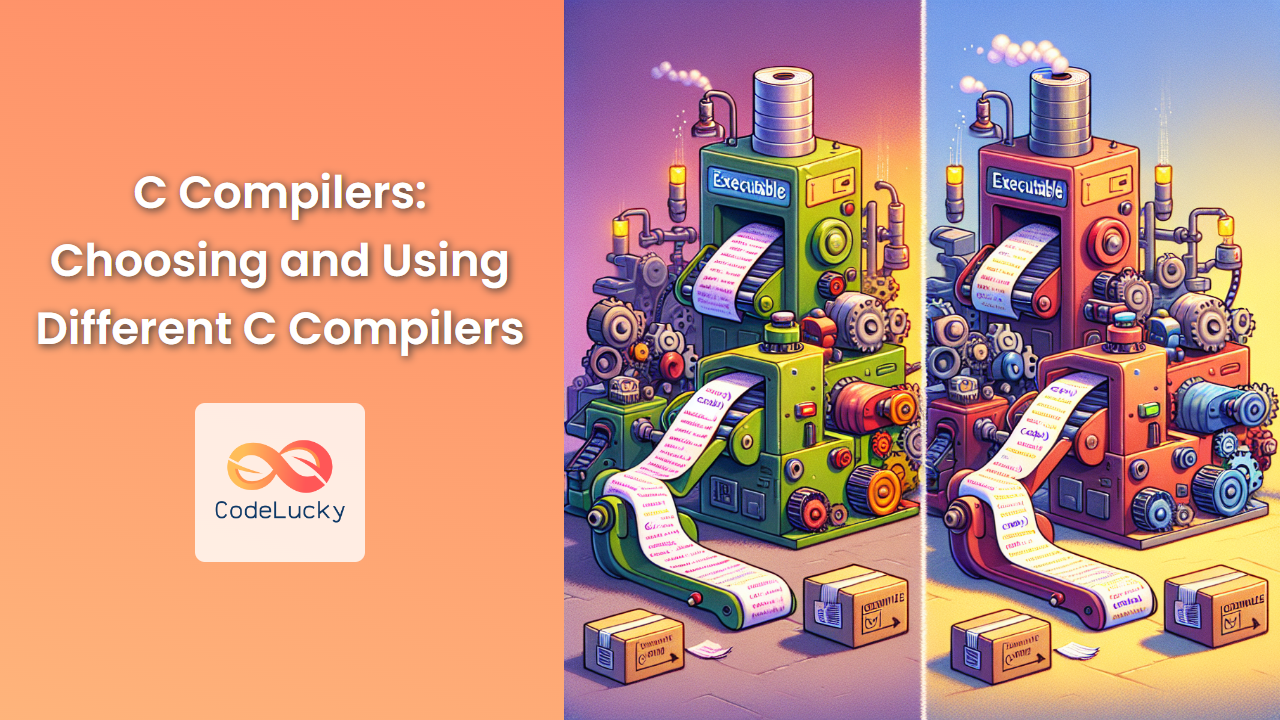C programming, while powerful and versatile, is notorious for its potential pitfalls. Even seasoned developers can fall prey to common mistakes that lead to bugs, security vulnerabilities, or unexpected behavior. In this comprehensive guide, we'll explore the most frequent C programming pitfalls and provide practical strategies to avoid them. By understanding these common errors, you'll write more robust, efficient, and secure C code.
1. Buffer Overflows
Buffer overflows are one of the most critical and common mistakes in C programming. They occur when a program writes data beyond the bounds of allocated memory.
Example:
#include <stdio.h>
#include <string.h>
void vulnerable_function(char *input) {
char buffer[10];
strcpy(buffer, input); // Dangerous!
printf("Buffer contents: %s\n", buffer);
}
int main() {
char *user_input = "This is a very long string that will overflow the buffer";
vulnerable_function(user_input);
return 0;
}
In this example, strcpy is used to copy a string into a buffer without checking the length. If the input string is longer than the buffer, it will overflow, potentially overwriting other variables or even executable code.
How to Avoid:
- Use bounded string functions like
strncpyinstead ofstrcpy. - Always check buffer sizes before writing to them.
- Use static analysis tools to detect potential buffer overflows.
Here's a safer version:
#include <stdio.h>
#include <string.h>
void safer_function(const char *input) {
char buffer[10];
strncpy(buffer, input, sizeof(buffer) - 1);
buffer[sizeof(buffer) - 1] = '\0'; // Ensure null-termination
printf("Buffer contents: %s\n", buffer);
}
int main() {
const char *user_input = "This is a very long string that will be truncated";
safer_function(user_input);
return 0;
}
2. Memory Leaks
Memory leaks occur when dynamically allocated memory is not properly freed, leading to resource exhaustion over time.
Example:
#include <stdlib.h>
void leaky_function() {
int *ptr = (int *)malloc(sizeof(int));
*ptr = 42;
// Function ends without freeing ptr
}
int main() {
for (int i = 0; i < 1000000; i++) {
leaky_function();
}
return 0;
}
This program allocates memory in a loop but never frees it, causing a significant memory leak.
How to Avoid:
- Always pair
mallocwithfree. - Use tools like Valgrind to detect memory leaks.
- Implement proper error handling to ensure memory is freed in all code paths.
Here's a corrected version:
#include <stdlib.h>
void non_leaky_function() {
int *ptr = (int *)malloc(sizeof(int));
if (ptr == NULL) {
// Handle allocation failure
return;
}
*ptr = 42;
// Use ptr...
free(ptr);
}
int main() {
for (int i = 0; i < 1000000; i++) {
non_leaky_function();
}
return 0;
}
3. Integer Overflow
Integer overflow occurs when an arithmetic operation attempts to create a numeric value that is outside of the range that can be represented with a given number of bits.
Example:
#include <stdio.h>
#include <limits.h>
int main() {
int a = INT_MAX;
printf("a = %d\n", a);
a++;
printf("a + 1 = %d\n", a);
return 0;
}
Output:
a = 2147483647
a + 1 = -2147483648
This unexpected behavior can lead to security vulnerabilities or logical errors in your program.
How to Avoid:
- Use appropriate data types (e.g.,
unsignedfor non-negative values). - Check for potential overflows before performing arithmetic operations.
- Consider using safer alternatives like
intmax_toruintmax_tfrom<stdint.h>.
Here's a safer approach:
#include <stdio.h>
#include <limits.h>
#include <stdint.h>
int main() {
intmax_t a = INT_MAX;
printf("a = %jd\n", a);
if (a == INTMAX_MAX) {
printf("Cannot increment a: would cause overflow\n");
} else {
a++;
printf("a + 1 = %jd\n", a);
}
return 0;
}
4. Null Pointer Dereference
Dereferencing a null pointer is undefined behavior in C and can lead to program crashes or unpredictable results.
Example:
#include <stdio.h>
int main() {
int *ptr = NULL;
*ptr = 42; // Crash!
printf("Value: %d\n", *ptr);
return 0;
}
This program will likely crash when attempting to dereference the null pointer.
How to Avoid:
- Always check pointers for NULL before dereferencing.
- Initialize pointers to NULL if they're not immediately assigned a valid address.
- Use static analysis tools to detect potential null pointer dereferences.
Here's a safer version:
#include <stdio.h>
#include <stdlib.h>
int main() {
int *ptr = malloc(sizeof(int));
if (ptr == NULL) {
fprintf(stderr, "Memory allocation failed\n");
return 1;
}
*ptr = 42;
printf("Value: %d\n", *ptr);
free(ptr);
return 0;
}
5. Uninitialized Variables
Using uninitialized variables can lead to unpredictable behavior, as their values are indeterminate.
Example:
#include <stdio.h>
int main() {
int x;
if (x == 0) {
printf("x is zero\n");
} else {
printf("x is not zero\n");
}
return 0;
}
The output of this program is unpredictable because x is uninitialized.
How to Avoid:
- Always initialize variables before use.
- Enable compiler warnings (e.g.,
-Wall -Wextrafor GCC) to catch uninitialized variable usage. - Use static analysis tools for additional checks.
Here's a corrected version:
#include <stdio.h>
int main() {
int x = 0; // Initialize x
if (x == 0) {
printf("x is zero\n");
} else {
printf("x is not zero\n");
}
return 0;
}
6. Off-by-One Errors
Off-by-one errors occur when a loop iterates one time too many or too few, often due to confusion about array indexing or boundary conditions.
Example:
#include <stdio.h>
#define ARRAY_SIZE 5
int main() {
int arr[ARRAY_SIZE] = {1, 2, 3, 4, 5};
// Incorrect loop (off-by-one error)
for (int i = 0; i <= ARRAY_SIZE; i++) {
printf("%d ", arr[i]); // Accesses out-of-bounds memory on last iteration
}
return 0;
}
This loop iterates one time too many, accessing memory beyond the array bounds.
How to Avoid:
- Be careful with loop conditions, especially when using
<=vs<. - Use array indexing consistently (remember, arrays in C are 0-indexed).
- Consider using
forloops with explicit start and end conditions.
Here's a corrected version:
#include <stdio.h>
#define ARRAY_SIZE 5
int main() {
int arr[ARRAY_SIZE] = {1, 2, 3, 4, 5};
// Correct loop
for (int i = 0; i < ARRAY_SIZE; i++) {
printf("%d ", arr[i]);
}
return 0;
}
7. Ignoring Compiler Warnings
Compiler warnings are often indicators of potential issues in your code. Ignoring them can lead to subtle bugs or undefined behavior.
Example:
#include <stdio.h>
int main() {
int x = 10;
if (x = 5) { // Assignment instead of comparison
printf("x is 5\n");
} else {
printf("x is not 5\n");
}
return 0;
}
This code uses assignment (=) instead of comparison (==), which most compilers will warn about.
How to Avoid:
- Enable and pay attention to compiler warnings (e.g., use
-Wall -Wextra -Werrorwith GCC). - Treat warnings as errors during development.
- Understand and address each warning, don't just silence them.
Here's a corrected version:
#include <stdio.h>
int main() {
int x = 10;
if (x == 5) { // Correct comparison
printf("x is 5\n");
} else {
printf("x is not 5\n");
}
return 0;
}
8. Improper Error Handling
Failing to check return values or handle errors properly can lead to crashes, resource leaks, or security vulnerabilities.
Example:
#include <stdio.h>
int main() {
FILE *file = fopen("nonexistent_file.txt", "r");
char buffer[100];
fgets(buffer, sizeof(buffer), file); // Potential crash if file is NULL
printf("Read: %s\n", buffer);
fclose(file);
return 0;
}
This program doesn't check if fopen succeeded, potentially leading to a crash when using the file pointer.
How to Avoid:
- Always check return values from functions that can fail.
- Use proper error handling techniques (e.g., returning error codes, using errno).
- Clean up resources in error cases to prevent leaks.
Here's a safer version:
#include <stdio.h>
#include <stdlib.h>
#include <errno.h>
#include <string.h>
int main() {
FILE *file = fopen("nonexistent_file.txt", "r");
if (file == NULL) {
fprintf(stderr, "Error opening file: %s\n", strerror(errno));
return 1;
}
char buffer[100];
if (fgets(buffer, sizeof(buffer), file) == NULL) {
if (feof(file)) {
printf("File is empty\n");
} else {
fprintf(stderr, "Error reading file: %s\n", strerror(errno));
}
} else {
printf("Read: %s\n", buffer);
}
fclose(file);
return 0;
}
9. Misunderstanding Operator Precedence
C's operator precedence rules can sometimes lead to unexpected behavior if not properly understood.
Example:
#include <stdio.h>
int main() {
int a = 5, b = 10, c = 15;
int result = a + b * c;
printf("Result: %d\n", result);
return 0;
}
Some might expect this to calculate (a + b) * c, but due to operator precedence, it actually calculates a + (b * c).
How to Avoid:
- Use parentheses to make your intentions explicit.
- Familiarize yourself with C's operator precedence rules.
- When in doubt, break complex expressions into simpler ones.
Here's a clearer version:
#include <stdio.h>
int main() {
int a = 5, b = 10, c = 15;
int result = (a + b) * c; // Explicit parentheses
printf("Result: %d\n", result);
return 0;
}
10. Misusing Macros
Macros in C can be powerful but also dangerous if misused. They can lead to unexpected behavior due to textual substitution.
Example:
#include <stdio.h>
#define SQUARE(x) x * x
int main() {
int result = SQUARE(5 + 1);
printf("Result: %d\n", result);
return 0;
}
This macro expands to 5 + 1 * 5 + 1, which evaluates to 11, not 36 as might be expected.
How to Avoid:
- Use parentheses in macro definitions to ensure correct order of operations.
- Consider using inline functions instead of macros when possible.
- Be aware of potential side effects in macro arguments.
Here's a corrected version:
#include <stdio.h>
#define SQUARE(x) ((x) * (x))
int main() {
int result = SQUARE(5 + 1);
printf("Result: %d\n", result);
return 0;
}
Conclusion
C programming, while powerful, comes with its share of pitfalls. By being aware of these common mistakes and following best practices, you can write more robust, secure, and maintainable C code. Remember to:
- Always check buffer sizes and use safe string functions.
- Manage memory carefully, pairing allocations with frees.
- Be mindful of integer overflow and use appropriate data types.
- Check pointers for NULL before dereferencing.
- Initialize variables before use.
- Pay attention to loop boundaries and array indexing.
- Enable and address compiler warnings.
- Implement proper error handling.
- Use parentheses to make operator precedence explicit.
- Be cautious with macro definitions and usage.
By avoiding these common pitfalls, you'll not only write better C code but also develop good habits that will serve you well in your programming career. Happy coding! 🚀💻

